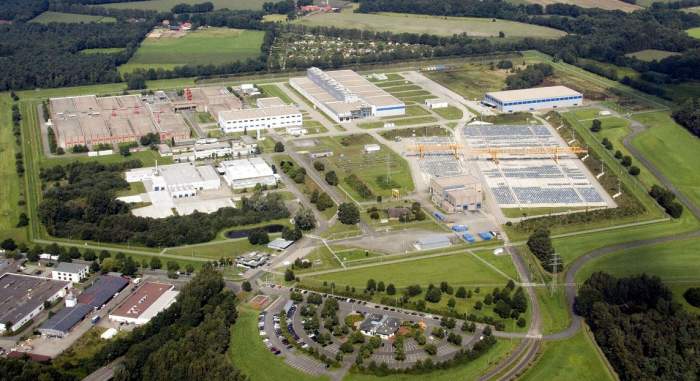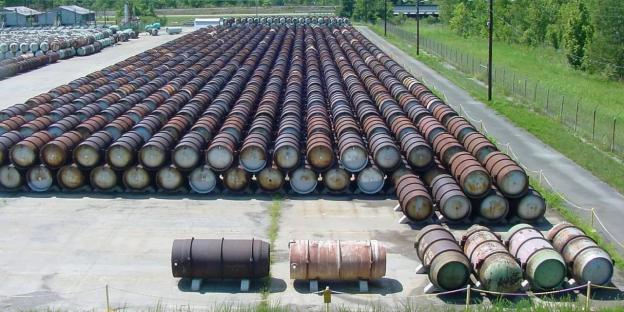Environmental groups have voiced concern in November 2019 that Russia is again accepting shipments of uranium tails, a byproduct formed when uranium is enriched, from a German nuclear fuel firm, reigniting a debate over whether the substance meets the definition of nuclear waste. The shipments of the toxic compound – also called uranium hexafluoride – were halted in 2009 over revelations that Russia was accepting it from foreign customers and storing it in the open. At that time, Rosatom, Russia’s nuclear corporation, bowed to environmental pressure and promised to no longer import the radioactive substance.
But German government documents revealed in November 2019 by Greenpeace and the Russian environmental group Ecodefense show that the German-based enrichment company Urenco resumed the uranium tail shipments as long ago as May 2019. According to Urenco’s contract with the Russian nuclear-fuel giant Teksnabeksport (Tenex), a subsidiary of Rosatom, some 12,000 tons of uranium tails are set to be delivered to Novouralsk, near Yekaterinburg by 2022. Four thousands tons have been sent so far….

Uranium hexafluoride, also called depleted uranium, is a colorless radioactive powder that is produced as a byproduct of enriching uranium for use as fuel in nuclear power plants. Urenco, which is a partnership involving German, British and Dutch energy firms, has operated an enrichment facility in Gronau, Germany since 1985. This facility stores depleted uranium in the open air. In the early 1990s, Russian opened its doors to reprocessing depleted uranium from foreign customers. A previous contract between Tenex and Urenco envisioned the import of 100,000 tons of uranium tails between 1996 and 2009.
The issue of whether uranium tails in fact constitute nuclear waste depends on whom you ask. Both Rosatom and Germany’s nuclear industry classify uranium hexafluoride as a recyclable material. The US Nuclear Regulatory Commission, however, has long held that uranium tails should be classified as nuclear waste – a view that Bellona, Ecodefense and Greenpeace share. But while Rosatom asserts that uranium tails are valuable raw material, the motive for importing them is unclear. By most estimates, Russia already holds nearly 1 million tons of uranium tails from its own fuel production – making the need for another 12,000 tons from abroad questionable.
Charles Digges, Russia resumes importing depleted uranium from Germany, breaching old promises, Bellona, Nov. 1, 2019
